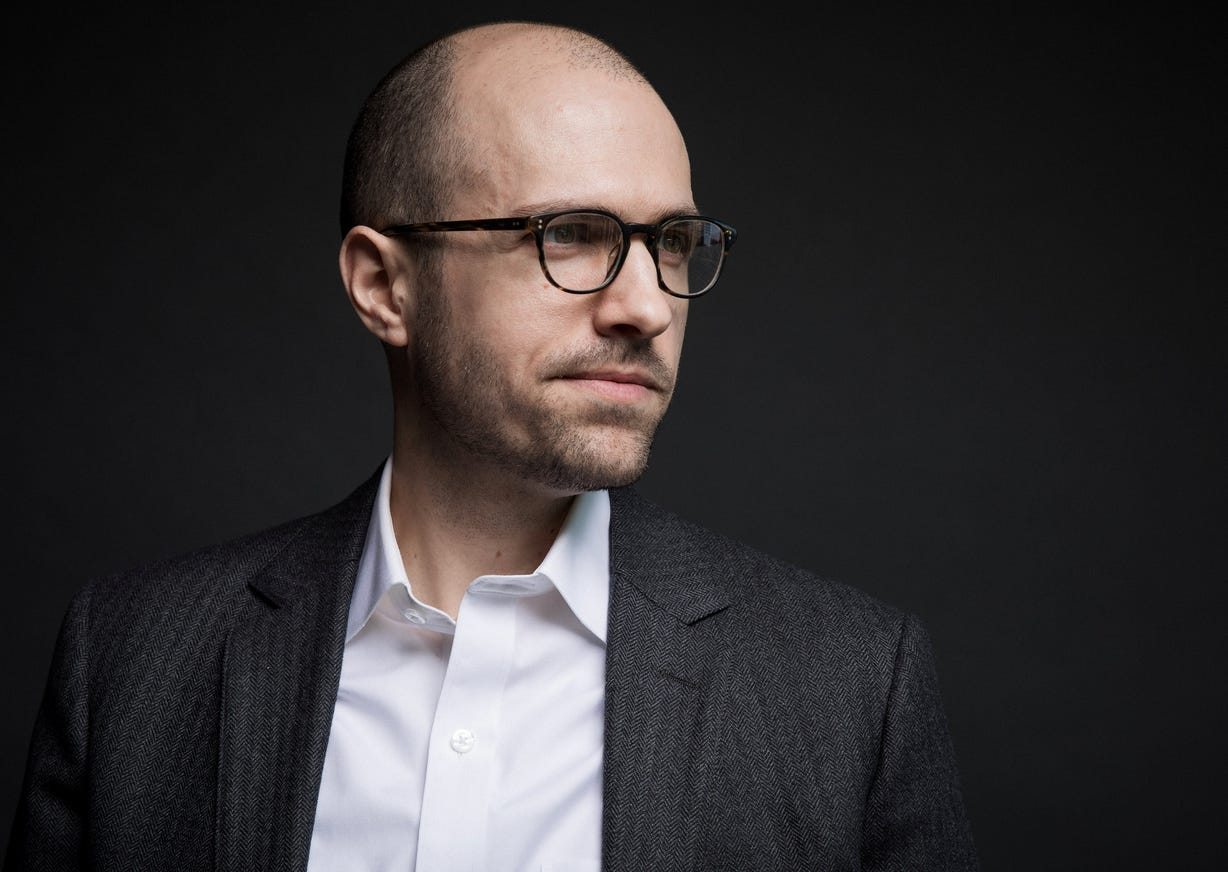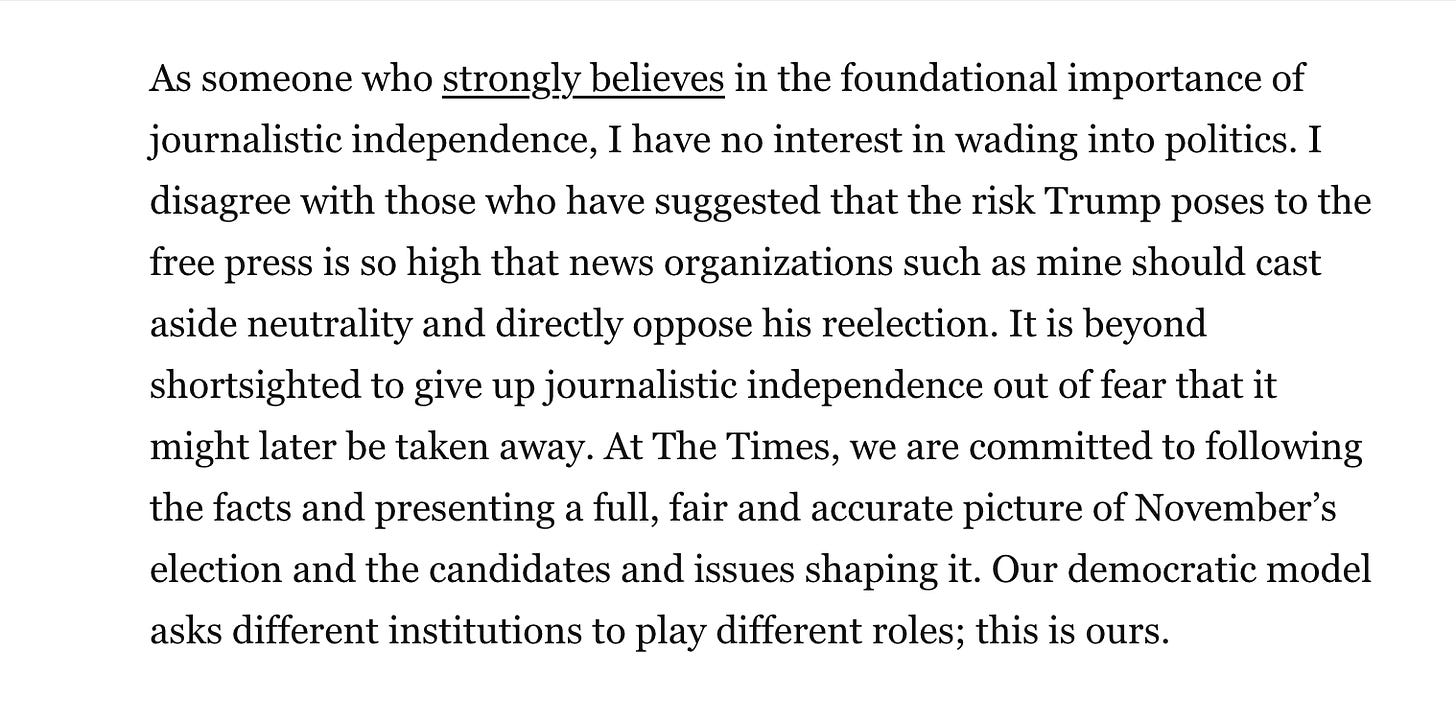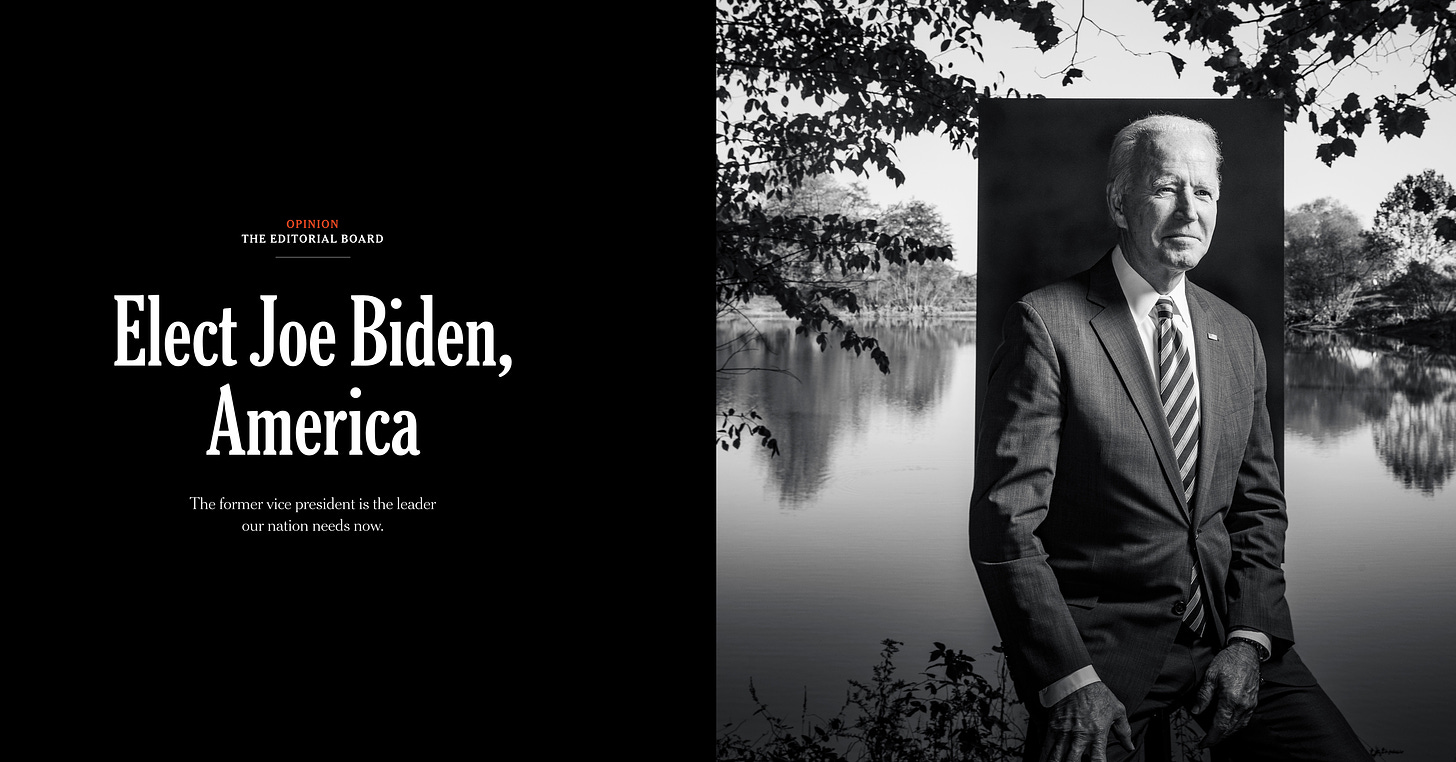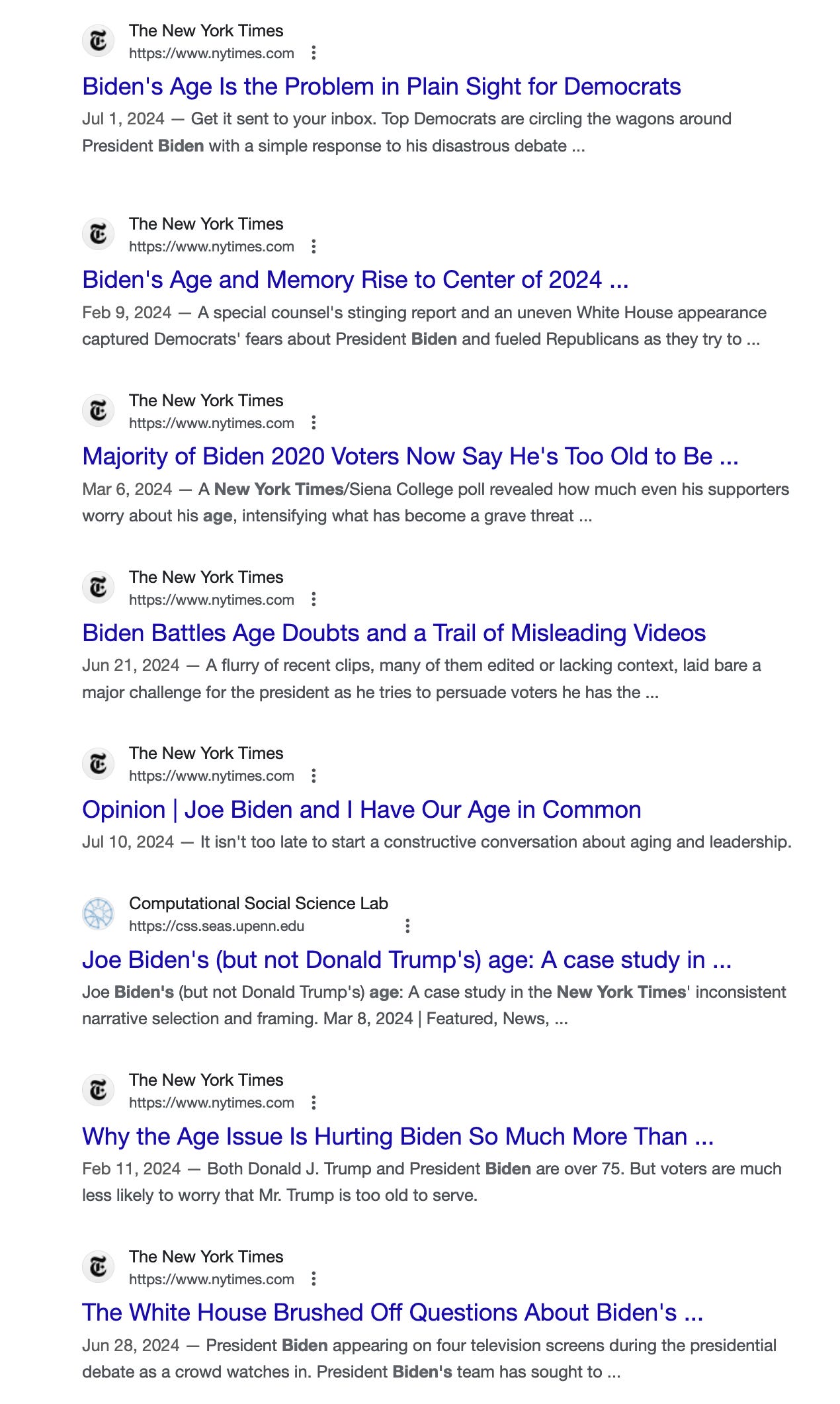This morning, New York Times publisher A.G. Sulzberger authored a piece in the pages of his competitor, the Washington Post, chronicling the rising dangers to a free press in America.
It’s a lengthy read, but it does a thorough job of detailing the rising dangers to American journalism and clearly lays the blame at the feet of one man in particular — Donald Trump. This isn’t a surprising analysis by any means, but it is surprising to see it coming from A.G. Sulzberger. (As many joked on social media, he apparently had to run it in the Post because acknowledging the clear threat posed by Trump goes against the house rules at his own paper.)
To his credit, Sulzberger offers a clear-eyed account of the assault on the free press coming from the far right. He notes at great length the many ways in which Trump has demonstrated his utter contempt for journalists and has inculcated his cult of personality with the same attitudes. (These verbal attacks, as we’ve been reminded recently, often bleed over into physical ones.) He notes the authoritarian measures Trump encouraged as president, especially in the waning days of his first term, and notes correctly that Trump is now promising to go even further in his crackdown on the free press in a second term.
Sulzberger goes on to detail the ways in which authoritarian leaders around the globe — such as Victor Orban of Hungary, Jair Bolsanaro of Brazil, and Narendra Modi of India — have put into practice the kinds of things their very good friend Donald Trump of America is promising to do, making it quite clear that these threats can in fact come true.
But after detailing the very real dangers posed by Trump, Sulzberger essentially argues that the press should still pretend everything is normal.
Where to begin?
For starters, “I have no interest in wading into politics” is an incredible line for someone who has just spent thousands of words describing how politics is already wading into the media, intent on doing real harm to the institution and the nation too. Deciding that you’re going to sit politics out is a political choice, plain and simple.
Like many before him, Sulzberger wants to hide behind a claim of neutrality. He says that the newspaper shouldn’t “cast aside neutrality and directly oppose his reelection” but it’s not entirely clear what this means. Newspapers routinely endorse candidates in elections — in October 2020, his own paper ran an endorsement titled “Elect Joe Biden, America”
How was that not “casting aside neutrality”? In telling America to elect his opponent, was that not “directly opposing Trump’s re-election”? (The 2020 endorsement never once mentions Trump’s name, so perhaps that’s the work-around? They can endorse as long as He Who Shall Not Be Named isn’t named?)
Nevertheless, Sulzberger wants to pretend that his job requires him to maintain absolute neutrality. He assures us all that the Times is “committed to following the facts and presenting a full, fair and accurate picture of November’s election and the candidates and issues shaping it.”
While I disagree with the insistence that a “fair and balanced” approach is still warranted in this exceptional and exceptionally dangerous election, at this point I’d actually welcome an even-handed approach from Sulzberger because under his leadership the coverage in the New York Times has not been evenly balanced at all.
In the early months of 2024, and certainly after his disastrous debate performance in late June, the New York Times was on nothing less than a crusade to highlight the “age issue” presented by the 81-year-old president’s candidacy, taking every single opportunity to call out every stumble or verbal flaw as further proof that he was unfit to run again and to demand that he drop out of the race.
While the New York Times led the way in pushing the argument that Biden was too old, they maintained a plausible (to Sulzberger, at least) argument that other people were worried about his age — voters, donors, unnamed “insiders,” etc. — and they were simply describing a naturally-occurring phenomenon that they in no way shaped.
That, of course, is utter bullshit. The front page coverage of Biden’s gaffes and the opinion page’s carpetbombing approach to the age issue helped make that a concern for voters, donors, “insiders” etc., just as much as the front page coverage of Clinton’s “email problems” made that a concern. This is obvious.
According to Sulzberger, though, their coverage was merely part of their responsibility to present a “full, fair and accurate picture” of what was going on with the campaign. An elderly candidate’s struggles with memory and inability to grasp basic facts was alarming and they had a duty to press the issue, even aggressively.
But that argument collapses under the lightest scrutiny, because we still have an elderly candidate struggling with memory, unable to grasp basic facts. His name is Donald Trump. Just the other day, he insisted repeatedly in a town hall that he was still running against Joe Biden.
Had Joe Biden repeatedly said he was running against someone else, the Times would have issued screaming headlines, or perhaps even released a special issue. But here’s how they covered the press conference:
Yes, it’s good they actually put “without evidence” in the dek there, but his whining about fairness — a constant refrain — seems less important than the new revelation that he thinks he’s running against Biden.
It takes all the way down until the 17th paragraph before the slip up is even mentioned.
So, no, the New York Times has not been treating both candidates equally.
Despite Sulzberger’s protestations, they’ve had a heavy thumb on the scale all along — it’s just that it’s been for Trump rather than against him.










I would love to see Sulzberger respond to this criticism.
The maddening need to ignore outrageous conduct for fear of being seen as biased is destroying American journalism. I don't know if they even intend this result or if they just can't see it. In my final year of undergrad I had a survey course where the professor would mark down any assignment they believed expressed a point of view. I recall arguing that a "just the facts" approach to the story of the Chicago Seven would report that they were all convicted of contempt and conspiracy but the charges were later overturned on technicalities. While accurate, that description perverts the significance and meaning of the actual trial and outcome beyond all recognition. The professor just threatened to fail me if I didn't stop "taking sides" in my writing.
If the Sulzbergers of the world were trained in that mindset they may truly believe their own nonsense. Trump has convinced so many people that the media is mean and unfair to him that the media can't help themselves in trying to appear unbiased. I'm sure they've convinced themselves that not reporting on Biden's cognitive decline would be carrying water for the Democrats while reporting on Trump's obvious decline would be a display of bias - especially since Trump has always acted like a rabid baboon. How can anyone truly say this is different? They're not psychologists after all.
Unfortunately, far too many people take their cues from the media. As long as the media acts like this is all normal they will believe it is normal. The media needs to start sounding the alarm. Soon enough it might be too late.